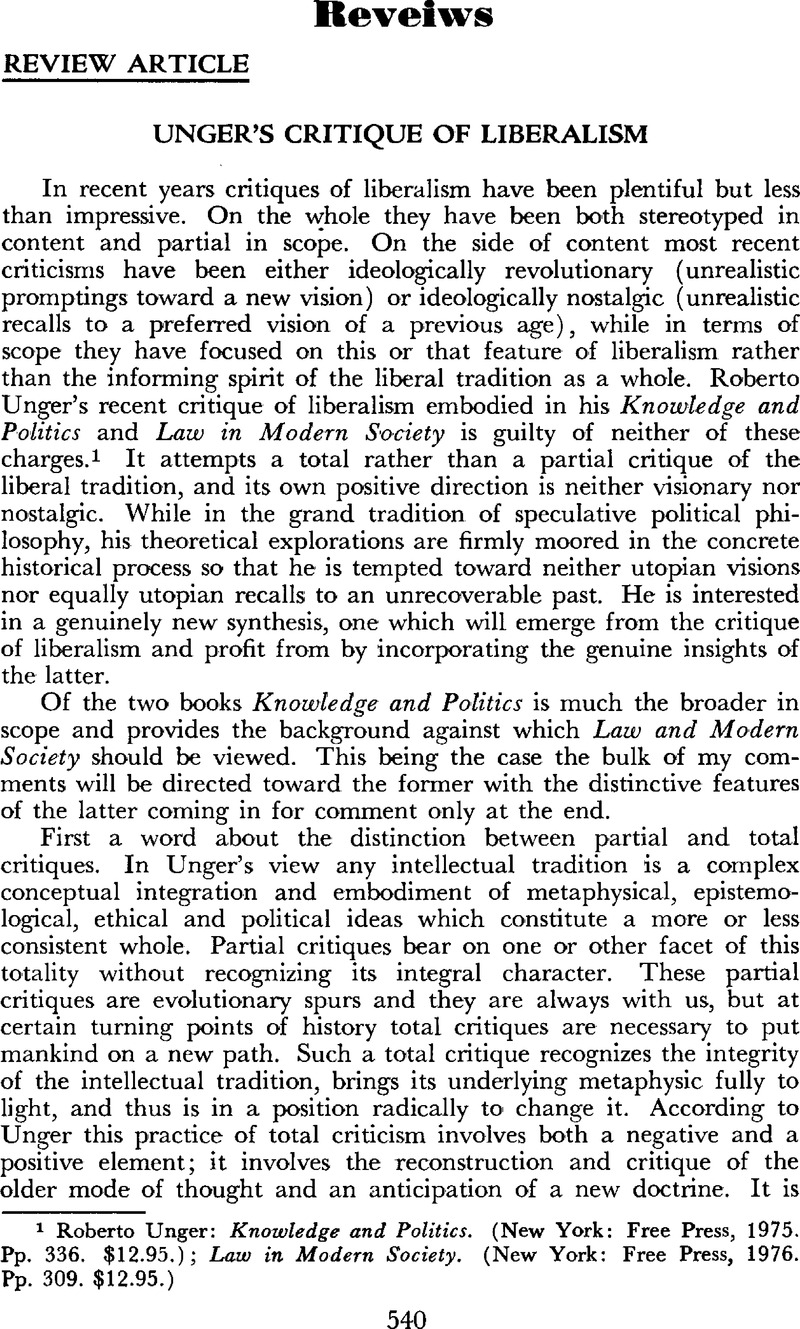Article contents
Unger's Critique of Liberalism
Published online by Cambridge University Press: 05 August 2009
Abstract

- Type
- Review Article
- Information
- Copyright
- Copyright © University of Notre Dame 1977
References
1 Unger, Roberto: Knowledge and Politics. (New York: Free Press, 1975. Pp. 336. $12.95.)Google Scholar; Law in Modern Society. (New York: Free Press, 1976. Pp. 309. $12.95.)Google Scholar
2 For the authoritative statement of the doctrine of intelligible essences Unger directs us to Aristotle Metaphysics 7.4. 1030a and Christian Wolff, Philosophia Prima sive Ontologica, #143. For the authoritative statement of its denial he directs us to Thomas Hobbes, Leviathan, pt. 4, chap. 46, and to John Stuart Mill, A System of Logic, bk. 1, cap. 6, #2.
3 On this point see my “Rawls on Method” in New Essays on Contract Theory, Canadian Journal of Philosophy, Supplementary Volume 3 (1977), 153–61Google Scholar.
- 2
- Cited by


